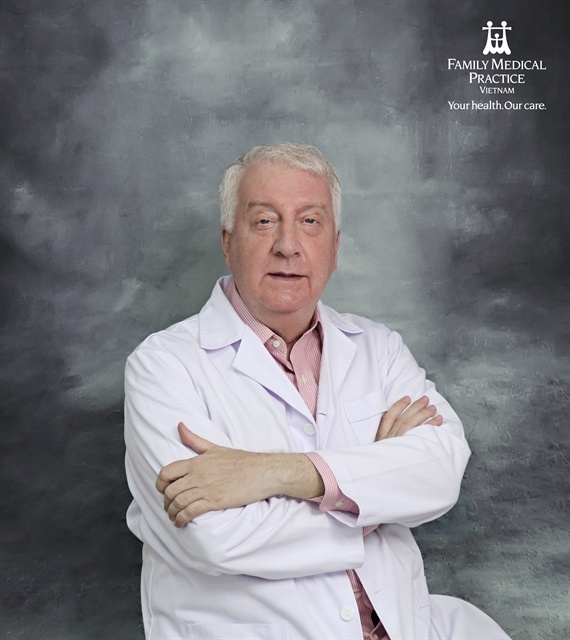 Life & Style
Life & Style


|
| Dr Brian McNaull. — Photo courtesy of Family Medical Practice |
Dr Brian McNaull*
1. Overview
Asthma is a condition in which your airways narrow and swell and produce extra mucus. This can make breathing difficult and trigger coughing, wheezing and shortness of breath.
Asthma affects from between 8 to 10 per cent of most populations worldwide, so it's quite a common condition. For some people, asthma is a minor nuisance. For others, it can be a major problem and may lead to a life-threatening asthma attack.
Asthma can't be cured, but its symptoms can be controlled by the use of inhalers, steroids for severe attacks and identifying asthma triggers.
2. What are the main symptoms of asthma
Asthma symptoms vary from person to person. You may have infrequent asthma attacks, have symptoms only at certain times – such as when exercising – or have symptoms all the time.
Asthma signs and symptoms include:
What is Seasonal and occupational Asthma?
3. At what point should I see a doctor if I have an asthma attack?
Seek emergency treatment
Severe asthma attacks can be life-threatening. Work with your doctor to determine what to do when your signs and symptoms worsen – and when you need emergency treatment. Signs of an asthma emergency include:
4. Is the cause or causes of asthma known?
It isn't clear, but it's probably due to a combination of environmental and genetic (inherited) factors.
Asthma triggers
Exposure to various irritants and substances that trigger allergies (allergens) can trigger signs and symptoms of asthma. Asthma triggers are different from person to person and can include:
5. What risk factors increase the risk of developing asthma?
A number of factors are thought to increase your chances of developing asthma. These include:
6. Are there any preventative measures I can take to optimise control?
By working together, you and your doctor can design a step-by-step plan for living with your condition and preventing asthma attacks.
Asthma is an ongoing condition that needs regular monitoring and treatment. Taking control of your treatment can make you feel more in control of your life in general.
* Living in Hà Nội since 2006, Dr Brian is presently Medical Director of Family Medical Practice Hà Nội. Graduated in the UK, he has practised medicine principally in Canada (1981-2005) until coming to Việt Nam. Postgraduate medical training includes Cambridge University (Chronic Disease Epidemiology and Biostatistics), University College London (Tropical and Infectious disease) and University of Toronto Hospitals (Hospital for Sick Children – Hematology and Bone Marrow Transplant) and Mt Sinai Hospital (Hepatology – Clinical trials experimental liver/virology unit 1997-2006). He has conducted medical research, worked and lectured in various countries on infectious disease topics, epidemiology and liver disease (Canada, Việt Nam, Cambodia, Philippines). He is also the weekly co-host of Radio the Voice of Việt Nam’s (VOV5) ‘Doctor at Home’.
Family Medical Practice was the first foreign-owned primary health care provider in Việt Nam, and has consistently remained at the forefront of international-standard medicine since 1995. It offers extensive healthcare and emergency medical services nationwide to Vietnamese, expatriate and corporate customers.
For more advice on any medical topics, visit Family Medical Practice (FMP) Hà Nội at: 298 I Kim Mã, Ba Đình. Tel: (024) 3843 0748. Email: hanoi@vietnammedicalpractice.com
FMP’s downtown Hồ Chí Minh City location is: Diamond Plaza, 34 Lê Duẩn, District 1; 95 Thảo Điền St, Dist 2. Tel: (028) 38227848. Email:
hcmc@vietnammedicalpractice.com
FMP Đà Nẵng is located at 96-98 Nguyễn Văn Linh St, Hải Châu Dist, Đà Nẵng. Tel: (0236) 3582 699. Email: danang@vietnammedicalpractice.com




